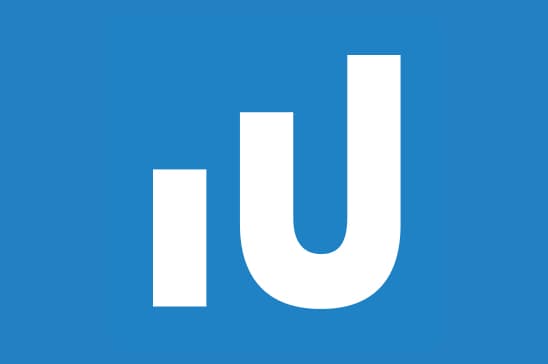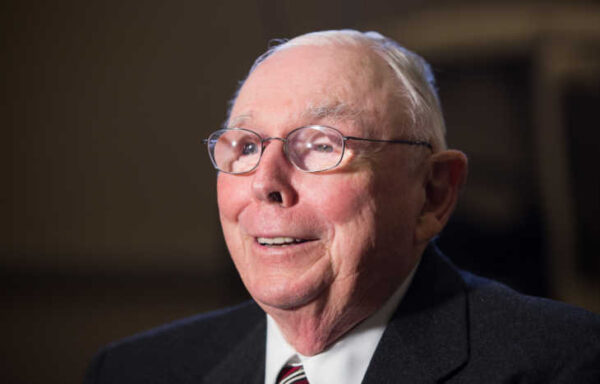5 Steps to Building Wealth in Your 30s
Building wealth in your 30s should be a continuation of building wealth in your 20s. There are a number of steps to building wealth that you have hopefully already taken. There are other steps that you should take now.
The average net worth of a 30-year-old American is about $7,000. That may not sound like a lot, but when many Americans have a zero or negative net worth, it’s not so bad.
Improving your net worth means continuing to increase assets and decrease debt. In order to do so, you will need to keep earning more income, cutting expenses, paying off debt, saving and investing.
Read More!
5 Steps to Building Wealth in Your 20s
5 Steps to Building Wealth in Your 40s
5 Steps to Building Wealth in Your 50s
5 Steps to Building Wealth in Your 60s
5 Steps to Building Wealth in Your 70s
In this article, we will look at some ways to keep building wealth in your 30s. By the end, you should be well on your way to building your dream lifestyle.
How You Should Already Be Building Wealth
There are a number of steps to building wealth in your 30s that you should have already started in your 20s. So make sure you do the following:
- Fully fund your emergency fund.
- Contribute to your 401(k).
- Keep your debt low and pay it down fast.
- Increase your salary.
- Open an IRA or Roth IRA.
- Open a taxable brokerage account.
If you have lagged behind on these important steps, that’s okay, but you should make sure to start doing them now. This way you won’t have too much catching up to do later. In the meantime, let’s take a look at the next steps you should be taking to keep building wealth.

Building Wealth in Your 30s
Step 1. Adjust Your Budget
Let’s face it: You’re not a kid anymore. The budget that worked for building wealth in your 20s likely won’t work for building wealth in your 30s, so you will need to adjust your budget accordingly.
For starters, your housing situation has likely changed. In your early 20s, you may have found it perfectly acceptable to live with a roommate. Now? You may live with your spouse and/or your kids.
If you have changed from renting a spare bedroom to owning a house, you’ll need to adjust your housing budget accordingly. Nevertheless, I urge you to do everything possible to keep your housing budget under 25% of your net income.
And that may mean not keeping up with the Joneses or splurging on that McMansion. Of course, it’s your right to spend as you wish, but doing that may ultimately decrease your wealth rather than build it. Investing in real estate is good. Investing in stocks is better.
You hopefully make far more money now than you did in your 20s. But as you account for this increased income, try to prevent lifestyle creep. Generally, as people’s income increases, so does their spending. But you’ll want to try to keep this to a minimum as you keep building wealth in your 30s.
Step 2. Drive Modest Vehicles
You’ve probably heard that cars are a terrible investment. In fact, they aren’t investments at all. Cars are an expense and are usually financed through debt.
The average American family spends almost $800 per month – or $9,000 per year – on their cars. That much money could be another mortgage payment!
When building wealth in your 30s, try to keep your auto costs down as much as possible.
There are several ways you can do this. For starters, you should never buy a brand-new car. Generally, a new car loses value as soon as you drive it off the lot. You can avoid this immediate loss by buying a used model that’s a year old or more.
Another way to save money is to buy a dependable model that gets good gas mileage. This is especially important when oil prices are high and gas is expensive.
Finally, consider a less luxurious car than you can afford. Sure, you look fancy in that Mercedes or BMW. But is it really helping you build wealth… or is it just a drag on your money?
I drive a Honda Civic and I’m perfectly happy with it. It keeps my costs low, looks good to me, and is dependable and reliable. I also bought it used, which makes the deal even sweeter and has helped me continue to build wealth in my 30s.
Step 3. Keep Your Investments Diversified (Inexpensively)…
Keeping your investments diversified remains important while building wealth in your 30s (and beyond). It is the best way to improve your returns without taking on too much risk.
While you’re in your 30s, I recommend staying mostly invested in stocks. Keeping a small amount of money in bonds and a bit in a money market fund or cash equivalent is fine.
But in the long run, stocks are the most profitable investment. Plus, you still have many years until you’ll need this money to fund your retirement.
Even if the stock market collapses along the way, there is plenty of time for the prices to come roaring back and earn you big returns.
But to limit your exposure to risk, you can keep a nice mix of different types of stocks, including the following:
- Large cap
- Mid cap
- Small cap
- Growth
- Dividend
- Domestic
- International.
Furthermore, you can diversify your portfolio by using a combination of mutual funds, ETFs and REITs. These will help you to keep building your wealth while minimizing the chances that you lose most of your money.
Step 4. … But Take on Some Risk
When you’re building wealth in your 30s is the perfect time to take on plenty of risk. That’s because you have a long time frame to protect yourself from needing to absorb big losses.
For starters, you’ll want most of your portfolio to be in stocks rather than bonds and cash. Plus there are other ways you can add some risk – and therefore more potential reward – to your portfolio.
For example, penny stocks are stocks that generally trade at under $5 and can be quite risky. Many penny stocks are distressed companies, while others are companies that have a lot of growth potential but are still young.
Another possibility of adding risk is to look into early or pre-IPO investing. Companies that are pre-IPO (the time before they go public) can have a lot of potential to make enormous returns. But many of them don’t work out, and that’s what makes investing in them risky.
Still, you’ll want to keep the majority of your investment money in the tried and true: great companies that are likely to remain great companies well into the future. Whether these investments are tech stocks, biotech or consumer staples companies, they have a very good shot of outperforming the broader market over time.
Step 5. Stay the Course in Building Wealth
On the highway to building wealth in your 30s, you’ll have many temptations to take the nearest exit. There will be pressure to keep up with the Joneses. You will experience the temptation to give in to lifestyle creep. The list of wants, needs and useless stuff to buy is never exhausted.
Nevertheless, hold on and be strong in your path. You’ve worked hard to build your wealth. You’ve stocked that emergency fund, avoided the fancy cars and kept your housing costs low.
Now is not the time to bow to the pressures to spend, spend and spend some more. Building wealth is not glamorous. In many ways, it’s the exact opposite. But in the end, you will be living the rich life you have always dreamed of and have peace of mind as well.
One way to continue to inspire yourself to build wealth is to continue learning. Education is one of the best investments in yourself. Look to books, videos, podcasts and more to keep learning about personal finance and investing.
Concluding Thoughts on Building Wealth in Your 30s
Building wealth is no great mystery. It’s more about intention, persistence and grit, and, most of all, making good choices when it comes to your money and lifestyle.
If you want to keep your money top of mind and continue to learn how to build wealth and invest, make sure to sign up for the Investment U e-letter in the subscription box below or by clicking here.
If you keep building wealth in your 30s, you will be on your way to achieving the rich lifestyle you want and deserve. Following the steps laid out in this article will keep you on the surefire road to success.
Read Next: 5 Steps to Building Wealth in Your 40s
About Brian M. Reiser
Brian M. Reiser has a Bachelor of Science degree in Management with a concentration in finance from the School of Management at Binghamton University.
He also holds a B.A. in philosophy from Columbia University and an M.A. in philosophy from the University of South Florida.
His primary interests at Investment U include personal finance, debt, tech stocks and more.





